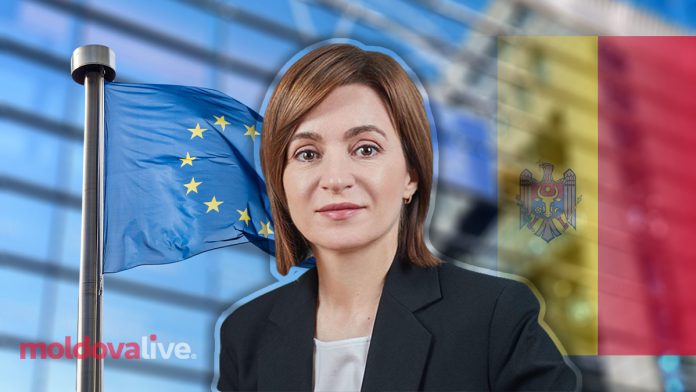President Maia Sandu believes that in the next few years, there will be a “geopolitical” chance to resolve the Transnistrian conflict. But if this doesn’t happen, Moldova will be able to enter the EU first with the right bank of the Dniester River and then with the left, said the head of the Free Europe state.
Maia Sandu made this remark in an interview given on Monday in Prague to Rikard Jozwiak, the editor for European affairs at Radio Free Europe. She added that it would be preferable for Moldova to integrate into the EU as a unified state.
When asked if she sees the possibility of integration into the EU following the model of a divided Cyprus, Maia Sandu replied, “We will have to discuss that.”
The issue of “importing conflicts” into the EU with a new expansion, which some officials see as possible around 2030, is one of the most sensitive topics in preliminary discussions regarding the admission of new members such as Ukraine, Moldova, or Western Balkan countries.
While some point to the favorable precedent of Cyprus, a country admitted in 2004 despite not controlling its northern, Turkish region, others believe that admitting more countries with long-standing territorial disputes (Moldova, Ukraine, Bosnia, Kosovo, etc.) would pose a significant security risk for the EU.
The EU has not yet formulated a definitive position on this matter.
FOR THE MOST IMPORTANT NEWS, FOLLOW US ON LINKEDIN!
Maia Sandu is in Prague on the occasion of the 27th edition of the international Forum 2000 conference, initiated in the 1990s by the former Czech President Václav Havel.
Sandu spoke at the opening of the meeting on Monday, immediately after the host country’s president, Petr Pavel. Her speech was about how Russian aggression against Ukraine has created a new “Iron Curtain” in Europe, forcing countries to choose which side they want to be on.
According to Maia Sandu, Moldovans have chosen the path of democracy and freedom, embodied by the goal of joining the European Union.
“Do not abandon us!” pleaded the Moldovan president at the end, who also had a separate meeting on her agenda during her visit to the Czech capital with her Czech counterpart, Petr Pavel.


